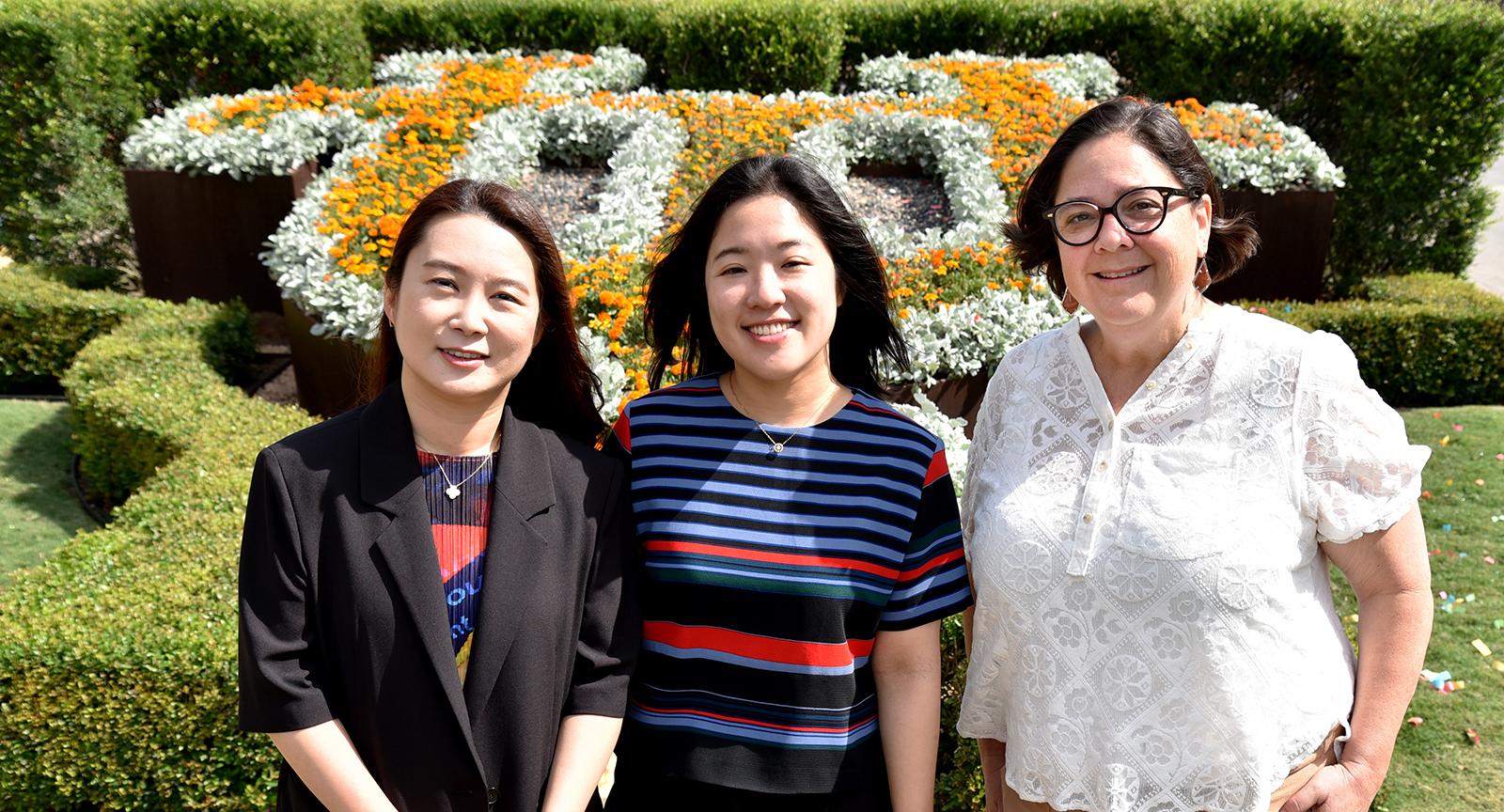
At The University of Texas at Austin School of Nursing, global engagement is more than a mission—it’s a practice, a vision and a catalyst for advancing health worldwide. The Visiting Scholars Program, housed within the Center for Global Nursing and Health (CGNH), is a vital part of that effort.
The success of the Visiting Scholars Program is grounded in strong, visionary leadership and a long-standing commitment to global collaboration.

“Essentially, the Visiting Scholars Program is the CGNHs dynamic approach to making the School of Nursing's global commitment a reality, using strategic partnerships to boost our research, improve our practices and expand our influence worldwide,” said Linda Kim, PhD, MSN, RN, PHN, CPHQ, CGNC, associate professor and director of CGHN.
The School’s foundation of global nursing engagement has been in place for decades and strengthened under the leadership of Dean Eun-Ok Im, PhD, MPH, RN, CNS, FAAN.
The School of Nursing partners closely with Texas Global to provide support for visiting scholars. This collaboration ensures that scholars have access to the resources they need, from securing visas and demonstrating English proficiency to fully engaging with faculty, staff and students across campus. Texas Global plays a vital role in welcoming scholars to the University, offering orientation services, connecting them with campus-wide opportunities and assisting throughout their stay.
Global growth and goals
Today’s partnerships, including those with more than ten institutions across the globe, reflect this strategic, long-term investment. By recruiting exceptional international PhD students and supporting their growth, the UT Austin School of Nursing helps shape future global nursing leaders—many of whom advance into prominent roles in academia and healthcare. This approach has fostered a powerful, mutually beneficial global network.
The program serves as a bridge connecting global academic and health care communities with the School of Nursing. Through this program, the School enriches academic exchange by welcoming scholars who bring different perspectives, innovative methodologies and varied academic approaches. These visits foster collaborative research that addresses urgent global health challenges while also enhancing the curriculum by integrating scholars directly into teaching and mentorship. Most importantly, it translates academic knowledge into actionable strategies that improve health outcomes across local and global communities.
“Our Visiting Scholar Program intentionally aligns with and amplifies the core strengths and cutting-edge work underway at the School of Nursing,” Kim added. “Rather than limiting ourselves to a narrow set of themes, we leverage the breadth and depth of our faculty's expertise and our established academic programs to foster a rich exchange of ideas and collaborative opportunities.”
Prioritizing engagement in areas that reflect the School’s strengths, including doctoral education, advanced clinical practice, and a wide range of research activities, scholars contribute to and learn from work in PhD and DNP programs, collaborate on ongoing studies and explore topics such as health disparities, disaster preparedness, aging, chronic illness and food insecurity. This focus fosters dynamic academic exchange and meaningful global health collaborations that advance nursing education, research and practice.
Tailored experiences
By engaging scholars at every stage of their academic journey, from senior faculty to undergraduate students, the program cultivates a rich and layered exchange of ideas and expertise.
Each scholar’s visit is customized based on their goals and duration. Short stays include targeted faculty meetings, while longer visits may involve presentations, teaching and collaborative research. Long-term residencies offer deeper integration into research teams and classroom activities.
“Our program is designed to cultivate enduring relationships and forge lasting partnerships, extending far beyond the duration of a visiting scholar's stay,” Kim said. We've consistently observed that the in-person interactions and collaborative work among scholars from different universities have a profound and direct impact on future academic endeavors.”
These connections often lead to ongoing research projects, joint funding efforts and collaborative teaching that enrich curricula and broaden student perspectives. They also deepen institutional engagement with global health issues.
In 2025 alone, visiting scholars have sparked new projects, student exchange opportunities and interdisciplinary collaborations at the School of Nursing, demonstrating the program’s lasting impact and the strength of its academic network.

